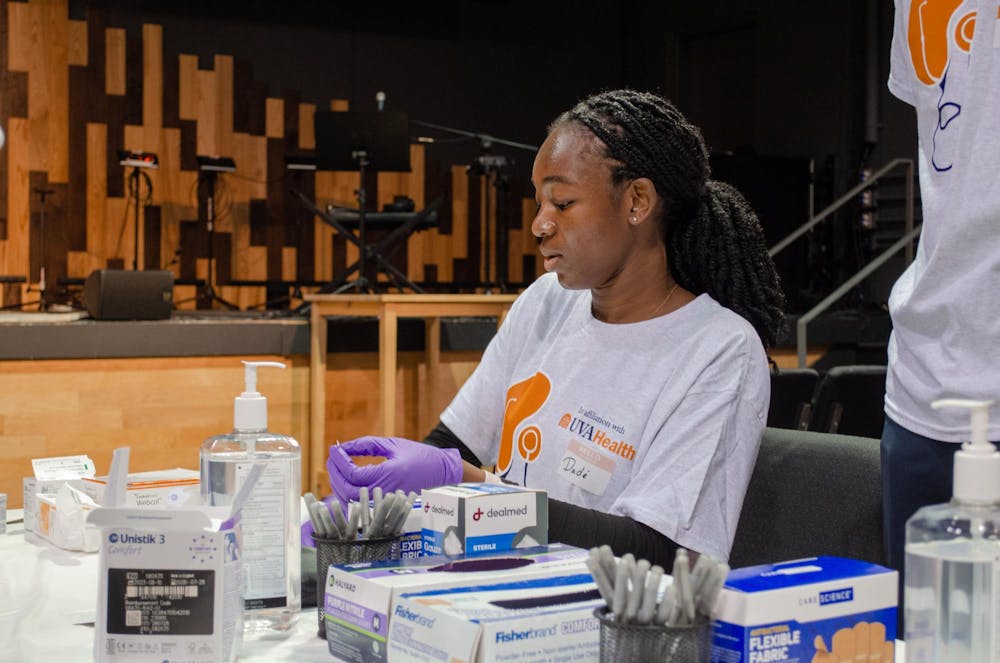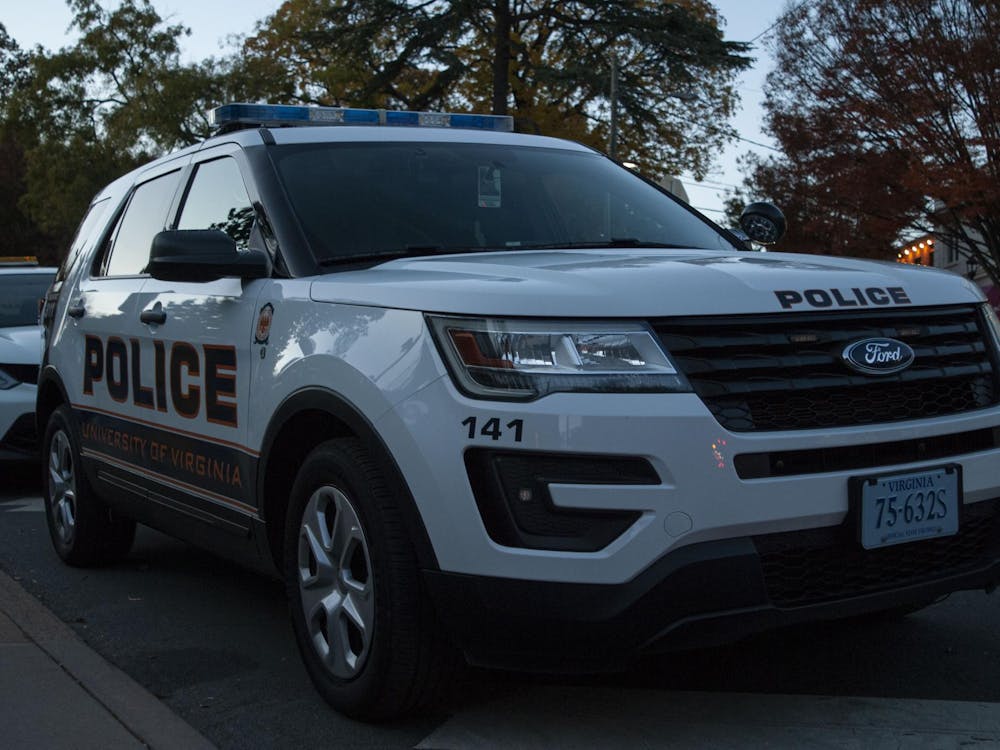Chronic kidney disease is known among clinicians as “silent” — it can progress for years without visible symptoms. Without regular check ups, patients may unknowingly advance into later stages requiring dialysis or transplant.
The University’s Kidney Disease Screening and Awareness Program is trying to change that.
Founded Spring 2022, the collaboration between students, physicians and community members has offered open kidney health screenings at locations like Mt. Zion First African Baptist Church and the Islamic Society of Central Virginia. At this fall’s event, KDSAP members filled Portico Church Saturday with equipment to measure BMI, run urinalysis and conduct blood tests. In medical gloves and UVa. Health t-shirts featuring a cartoon kidney, KDSAP members prepared for their rotations.
Since CKD affects an estimated one in seven Americans, Tess Eluvathingal Muttikkal, KDSAP community outreach director and third-year Engineering student, said screenings help participants catch early warning signs and make lifestyle changes.
“There are definitely members of the community who don't have the chance to go to a doctor every year or don't feel comfortable doing so,” Eluvathingal Muttikkal said. “So this is a way for U.Va. students to give back to the community and help catch a lot of preventable cases of chronic kidney disease.”
People of color are disproportionately represented among those suffering from kidney disease, along with those of lower socioeconomic status, according to the National Kidney Foundation.
To promote accessibility, all screening options are free with no prior registration required. After rotating through several testing stations, participants receive results and a consultation with one of the on-site physicians.
Saturday’s screening marked the first by KDSAP at Portico Church, near IX Art Park. Eluvathingal Muttikkal said each location brings a new demographic, so KDSAP members adapt resources to meet these needs.
“Every screening is different, but we try to take into account what a participant, maybe with no knowledge about kidney health, or [who] isn't very familiar with just health terms or terminology [knows] — how we can make our screenings really accessible,” Eluvathingal Muttikkal said.
KDSAP accepts student members from all backgrounds, but many are exploring the pre-health track. For those students, KDSAP offers a unique chance to use lab skills in the real world, as undergraduates assist physicians in administering tests. Samantha Upson, KDSAP member and fourth-year College student, joined the group after getting involved in nephrology research. She volunteered at a couple screenings last year before attending Saturday’s Portico event.
“I did the urinalysis, which I thought was fun, because I also do that in research, so to actually do it on participants was exciting,” Upson said.
Hanna Sovinski, KDSAP member and third-year College student, also said she enjoys the hands-on work with community impact. When helping participants, she said she makes an effort to learn “little tidbits about their life.”
“I've done blood pressure multiple times, and usually, you have to get their blood pressure down, so you have a conversation,” Sovinski said. “And it's nice to talk to them about how their day is going and connect with them on that level.”
KDSAP screenings typically bring in around 20 to 30 community participants over a span of a few hours. Members said they hope to expand this outreach to bring in more people and offer more events. While most screenings have been hosted near Grounds, Upson said rural coverage could reach new demographics.
Ahead of the screening, Eluvathingal Muttikkal said she hoped they would see the usual amount of community participants — but added that the real goal lies beyond the numbers.
“Obviously every person that we're able to screen is a person that we're helping,” Eluvathingal Muttikkal said. “So we try to remember that every person matters.”







